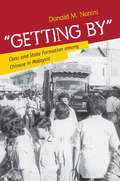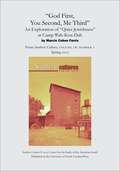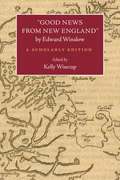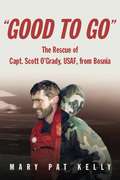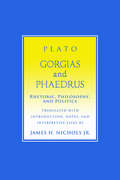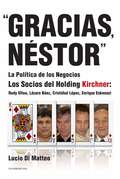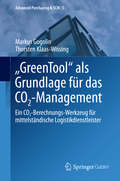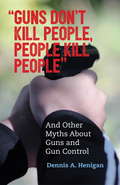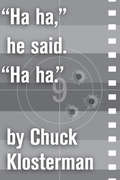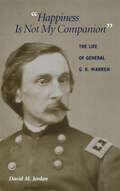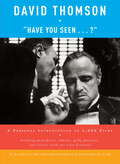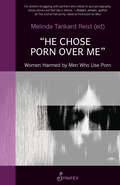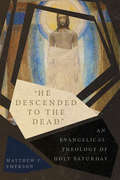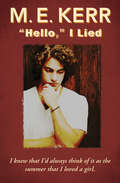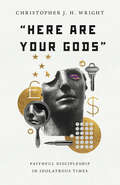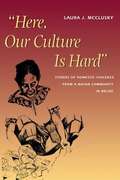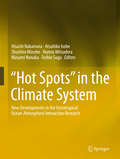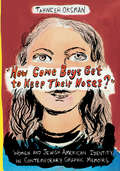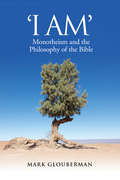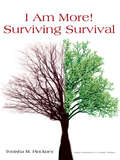- Table View
- List View
"GEnron"? Markopolos versus General Electric (B)
by David Lane Jonas HeeseSupplement to the (A) case that offers an assessment of the August 2019 Markopolos report on General Electric.
"GEnron?" Markopolos versus General Electric (A)
by David Lane Jonas HeeseIn August 2019, Harry Markopolos-the forensic accountant known for uncovering Bernie Madoff's Ponzi scheme-alleged that General Electric had committed accounting fraud totaling $38 billion, coining the term "GEnron" for perceived similarities with the 2001 accounting fraud at Enron that brought down that company and its auditor. Specifically, Markopolos claimed, GE would need to generate $29 billion in reserves against its insurance obligations, and restate its financials to recognize $9 billion in unreported losses on an oil subsidiary. Though GE management rejected these assertions, repeated writedowns and restatements of GE's performance since 2017 had made investors wary. They now scrambled to assess the merits of Markopolos's claims.
"Getting By": A Historical Ethnography of Class and State Formation in Malaysia
by Donald M. NoniniHow do class, ethnicity, gender, and politics interact? In what ways do they constitute everyday life among ethnic minorities? In "Getting By," Donald M. Nonini draws on three decades of research in the region of Penang state in northern West Malaysia, mainly in the city of Bukit Mertajam, to provide an ethnographic and historical account of the cultural politics of class conflict and state formation among Malaysians of Chinese descent. Countering triumphalist accounts of the capitalist Chinese diaspora in Southeast Asia, Nonini shows that the Chinese of Penang (as elsewhere) are riven by deep class divisions and that class issues and identities are omnipresent in everyday life. Nor are the common features of "Chinese culture" in Malaysia manifestations of some unchanging cultural essence. Rather, his long immersion in the city shows, they are the results of an interaction between Chinese-Malaysian practices in daily life and the processes of state formation--in particular, the ways in which Kuala Lumpur has defined different categories of citizens. Nonini's ethnography is based on semistructured interviews; participant observation of events, informal gatherings, and meetings; a commercial census; intensive reading of Chinese-language and English-language newspapers; the study of local Chinese-language sources; contemporary government archives; and numerous exchanges with residents.
"Globalization" and Relocation in a Vertically Differentiated Industry
by Tito Cordella Isabel GriloA report from the International Monetary Fund.
"God First, You Second, Me Third": An Exploration of 'Quiet Jewishness' at Camp Wah-Kon-Dah
by Marcie Cohen FerrisThis was an anxious time for American Jews, stung by the anti-Semitic quotas and discrimination of the interwar years and the growing horror regarding the fate of European Jewry as the Holocaust came to light in the 1940s."This article appears in the Spring 2012 issue of Southern Cultures. The full issue is also available as an ebook.Southern Cultures is published quarterly (spring, summer, fall, winter) by the University of North Carolina Press. The journal is sponsored by the University of North Carolina at Chapel Hill's Center for the Study of the American South.
"Golden Leash" Pay for Directors at The Dow Chemical Company
by Suraj Srinivasan Ian D Gow Neeraj GoyalIn November 2014, The Dow Chemical Company was faced with the prospect of a proxy battle with prominent hedge fund and activist investor Third Point Management. The activist had criticized Dow's recent performance and advocated that the company split itself to maximize its potential. The activist also proposed two director candidates to join Dow's board. Third Point offered its director nominees what had come to be known as a "golden leash" incentive structure - a significant amount of incentive payment from the investor if the company performed well. Supporters and critics had weighed in on the pros and cons of such incentive schemes for corporate independent directors. Faced with the prospect of a proxy fight, Dow's board had to decide whether to invite the two directors on to the company's board knowing they came with the special payment scheme from the hedge fund.
"Good News from New England" by Edward Winslow: A Scholarly Edition
by Kelly WisecupFirst published in 1624, Edward Winslow’s Good News from New England chronicles the early experience of the Plimoth colonists, or Pilgrims, in the New World. For several years Winslow acted as the Pilgrims’ primary negotiator with New England Algonquians, including the Wampanoag, Massachusett, and Narragansett Indians. During this period he was credited with having cured the Wampanoag sachem Massasoit, one of the colonists’ most valuable allies, of an apparently life-threatening illness, and he also served as the Pilgrims’ chief agent in England. <p><p> It was in the context of all of these roles that Winslow wrote Good News in an attempt to convince supporters in England that the colonists had established friendly relations with Native groups and, as a result, gained access to trade goods. Although clearly a work of diplomacy, masking as it did incidents of brutal violence against Indians as well as evidence of mutual mistrust, the work nevertheless offers, according to Kelly Wisecup, a more complicated and nuanced representation of the Pilgrims’ first years in New England and of their relationship with Native Americans than other primary documents of the period. <p> In this scholarly edition, Wisecup supplements Good News with an introduction, additional primary texts, and annotations to bring to light multiple perspectives, including those of the first European travelers to the area, Native captives who traveled to London and shaped Algonquian responses to colonists, the survivors of epidemics that struck New England between 1616 and 1619, and the witnesses of the colonists’ attack on the Massachusetts.
"Good to Go"
by Mary Pat KellySo perfectly executed was the mission to rescue Capt. Scott O'Grady that it amazed even the men responsible. Just five hours after radio contact was first made with Basher 52 - O'Grady's call sign the Air Force captain was safely on board the USS Kearsarge. The downed F-16 fighter pilot's rescue from a Bosnian mountainside by Col. Martin Berndt's 24th Marine Expeditionary Unit electrified the nation in June 1995 and renewed many Americans' faith in the military. This book tells the story of the mission in the words of the men who commanded, planned, and carried it out. To get the inside account, Mary Pat Kelly traveled throughout Europe to conduct more than one hundred interviews, visiting U. S. ships and bases and UN posts in Croatia and Bosnia where participants were stationed. Admiral Leighton W. Smith Jr. , commander in chief of U. S. naval forces in Europe and head of NATO forces in the Southern European theater, provides the framework with his day-to-day commentary on the efforts to find Captain O'Grady and a nearly minute-by-minute record of the rescue itself. In concert with Lt. Gen. Michael E. Ryan, commander of U. S. and NATO air forces, the admiral reveals the decision-making process that led to the "Good to Go" order. Readers then hear from the Tactical Recovery of Aircraft and Personnel (TRAP) team-the Navy and Marine Corps commanders, pilots, crew chiefs, and grunts who made it happen. Speaking for the Navy are Capt. Christopher Cole, skipper of the Kearsarge, Commo. Jerome Schill, and their staffs, from the intelligence officers to the grapes who fueled the aircraft. Captain O'Grady puts his own experiences in the context of overall events.
"Gorgias" and "Phaedrus": Rhetoric, Philosophy, and Politics
by Plato James H. Nichols Jr.With a masterful sense of the place of rhetoric in both thought and practice and an ear attuned to the clarity, natural simplicity, and charm of Plato's Greek prose, James H. Nichols Jr., offers precise yet unusually readable translations of two great Platonic dialogues on rhetoric.The Gorgias presents an intransigent argument that justice is superior to injustice: To the extent that suffering an injustice is preferable to committing an unjust act. The dialogue contains some of Plato's most significant and famous discussions of major political themes, and focuses dramatically and with unrivaled intensity on Socrates as a political thinker and actor. Featuring some of Plato's most soaringly lyrical passages, the Phaedrus investigates the soul's erotic longing and its relationship to the whole cosmos, as well as inquiring into the nature of rhetoric and the problem of writing.Nichols's attention to dramatic detail brings the dialogues to life. Plato's striking variety in conversational address (names and various terms of relative warmth and coolness) is carefully reproduced, as is alteration in tone and implication even in the short responses. The translations render references to the gods accurately and non-monotheistically for the first time, and include a fascinating variety of oaths and invocations. A general introduction on rhetoric from the Greeks to the present shows the problematic relation of rhetoric to philosophy and politics, states the themes that unite the two dialogues, and outlines interpretive suggestions that are then developed more fully for each dialogue.The twin dialogues reveal both the private and the political rhetoric emphatic in Plato's philosophy, yet often ignored in commentaries on it. Nichols believes that Plato's thought on rhetoric has been largely misunderstood, and he uses his translations as an opportunity to reconstruct the classical position on right relations between thought and public activity.
"Gracias, Néstor": La política de los negocios. Los socios del Holding Kirchner: Rudy Ulloa, Lázaro
by Lucio Di MatteoEl modus operandi de los socios del poder político en la Argentina:loskirchneristas no dejan documentos por escrito, de hecho las caras de losempresarios K casi no aparecen en público; pero los hechos comenzaron aregularizarse en Santa Cruz, sistematizarse en Buenos Aires y volverseprácticas habituales a nivel nacional. Lucio Di Matteo cuenta por qué no se trata de movimientos económicosaislados sino de un cuidadoso plan instrumentado por uno de lospresidentes más ambiciosos desde Perón.Los cuatro empresarios que protagonizan este libro participan denegocios relacionados con el Estado. Enrique Eskenazi con el petróleo,bancos, construcción y bodegas, entre otros. Cristóbal López con eljuego (los casinos y el hipódromo), y también el petróleo, aunque sediversifica preparándose para el poskirchnersimo. Lázaro Báez en la cajagrande de la obra pública, el petróleo nuevamente, hotelería y distintasempresas. Y Rudy Ulloa, ex chofer de Néstor Kirchner, en la caja chicadel multimedios santacruceño, gracias a la generosa pauta publicitariadel Estado Nacional.A partir de la argentinización de YPF la metodología comenzó avislumbrarse con mayor claridad y surgieron las denuncias de apriete aempresas extranjeras para que dejen sus activos en manos de la«burguesía nacional». Ezkenazi, López, Báez y Ulloa muestran una formade ejercer el poder en la Argentina y constituyen un ejemplo de lasrelaciones entre política y negocios.
"GreenTool" als Grundlage für das CO2-Management: Ein CO2-Berechnungs-Werkzeug für mittelständische Logistikdienstleister (Advanced Purchasing & SCM #5)
by Thorsten Klaas-Wissing Markus GogolinWeltweit verursachen Transport und Verkehr etwa ein Drittel der CO2-Emissionen, davon entfallen 75 Prozent auf den Straßenverkehr. NGOs, der Gesetzgeber aber auch Verlader fordern daher zunehmend Transparenz und die Senkung von CO2-Emissionen, was dazu geführt hat, dass sich CO2-Management für Logistikdienstleister zu einem strategischen Zukunftsthema entwickelt hat. Führende Logistikdienstleister setzen sich mit dem Thema CO2-Management intensiv auseinander und haben zur Erfassung und zum Reporting von Emissionskennzahlen weitgehend unternehmensindividuelle Lösungsansätze erarbeitet. Insbesondere mittelständische Logistikdienstleister stehen aber vor der Herausforderung, trotz schlanker Geschäftsstrukturen und begrenzter finanzieller sowie personeller Ressourcen, kontinuierlich Wissen aufzubauen und ein geeignetes operatives Instrumentarium für das CO2-Management zu entwickeln.
"Guns Don't Kill People, People Kill People": And Other Myths About Guns and Gun Control
by Dennis A. HeniganDebunking the lethal logic behind the pervasive myths that have framed the gun control debate"When guns are outlawed, only outlaws will have guns.""An armed society is a polite society.""The only thing that stops a bad guy with a gun is a good guy with a gun.""Gun control doesn't work because criminals don't follow the law.""Gun manufacturers shouldn't be responsible for gun crime, any more than Budweiser is responsible for drunk driving.""We don't need new gun laws. We just need to enforce the ones we have.""Gun control is a slippery slope to complete gun bans."The gun lobby's remarkable success in using these engaging slogans to frame the gun control debate has allowed it to block lifesaving gun legislation for decades. But is there any truth to this bumper-sticker logic? Dennis Henigan exposes the mythology and misguided thinking at the core of these pro-gun catchphrases, which continue to have an outsized influence on public attitudes toward guns and gun control. He counters the gun lobby's messages by weaving together the most compelling current research and insights drawn from the grim reality of deadly gunfire in our homes and communities. Henigan charts a new path toward ending the American nightmare of gun violence.From the Trade Paperback edition.
"Ha ha," He Said. "Ha ha."
by Chuck KlostermanOriginally collected in Eating the Dinosaur and now available both as a stand-alone essay and in the ebook collection Chuck Klosterman on Film and Television, this essay is about sitcoms.
"Happiness Is Not My Companion": The Life of General G. K. Warren
by David M. JordanThe valorous but troubled career of the Civil War general best known for defending Little Round Top and averting a Union defeat at Gettysburg.The lieutenant colonel of a New York regiment and rising star in the Army of the Potomac, Gouverneur K. Warren performed heroically at Gettysburg. For his service at Bristoe Station and Mine Run, he was awarded command of the Fifth Corps for the 1864 Virginia campaign.But Warren’s peculiarities of temperament and personality put a cloud over his service at the Wilderness and Spotsylvania and cost him the confidence of his superiors, Grant and Meade. He was summarily relieved of his command by Philip Sheridan after winning the Battle of Five Forks, just eight days before Appomattox. Warren continued as an engineer of distinction in the Army after the war, but he was determined to clear his name before a board of inquiry, which conducted an exhaustive investigation into the battle, Warren’s conduct, and Sheridan’s arbitrary action. However, the findings of the court vindicating Warren were not made public until shortly after his death.For this major biography of Gouverneur Warren, David M. Jordan utilizes Warren’s own voluminous collection of letters, papers, orders, and other items saved by his family, as well as the letters and writings of such contemporaries as his aide and brother-in-law Washington Roebling, Andrew Humphreys, Winfield Hancock, George Gordon Meade, and Ulysses S. Grant. Jordan presents a vivid account of the life and times of a complex military figure.
"Have You Seen ... ?" A Personal Introduction to 1,000 Films
by David ThomsonIn 1975, David Thomson published his Biographical Dictionary of Film, and few film books have enjoyed better press or such steady sales.Now, thirty-three years later, we have the companion volume, a second book of more than 1,000 pages in one voice--that of our most provocative contemporary film critic and historian.Juxtaposing the fanciful and the fabulous, the old favorites and the forgotten, this sweeping collection presents the films that Thomson offers in response to the question he gets asked most often--"What should I see?" This new book is a generous history of film and an enticing critical appraisal written with as much humor and passion as historical knowledge. Not content to choose his own top films (though they are here), Thomson has created a list that will surprise and delight you--and send you to your best movie rental service.But he also probes the question: after one hundred years of film, which ones are the best, and why?"Have You Seen . . . ?" suggests a true canon of cinema and one that's almost completely accessible now, thanks to DVDs. This book is a must for anyone who loves the silver screen: the perfect confection to dip into at any point for a taste of controversy, little-known facts, and ideas about what to see. This is a volume you'll want to return to again and again, like a dear but argumentative friend in the dark at the movies.From the Hardcover edition.
"He Chose Porn over Me": Women Harmed by Men Who Use Porn
by Melinda Tankard ReistHe chose porn over me. Porn killed my marriage. It killed my trust. It destroyed my sense of self and understanding of true intimacy-CourtneyShattering the popular myth that porn is harmless, the personal accounts of 25 brave women in He Chose Porn over Me reveal the real-life trauma experienced by women at the hands of their porn-consuming partners – men who were supposed to care for them. This confronting but necessary book dares to tell the truth about pornography's destructive impact – about the men who habitually use it and the women and children who are mistreated and discarded as a result.The women in this book were collateral damage in their partner's insatiable greed for porn. Their stories tell of the crushing of intimacy, respect, connection, love. Porn colonised their families, leaving women rejected and scarred. They were subjected to sexual terrorism in their own homes. The men, turbo-charged by pornography, were intoxicated by sexualised power. They didn't care if they lost everything including their partners. In this haunting exposé, pornography is rightfully situated as an insidious tool of violence against women.The contributors, now working to re-build their lives, found a confidante in Melinda Tankard Reist who supported them in the sharing of their experiences in these pages, and to warn other women – don't date men who use porn...As long as pornography exists, we don't stand a chance of creating a fair and equal world. —Carla
"He Descended to the Dead": An Evangelical Theology of Holy Saturday
by Matthew Y. EmersonThe Gospel Coalition"I believe he descended to the dead."
"Hello," I Lied
by M. E. KerrFrom the Margaret A. Edwards Award–winning author of Deliver Us from Evie comes a novel about a gay teenager who discovers a different kind of love during an unforgettable summer in the HamptonsI&’d always think of it as the summer that I loved a girl . . .Seventeen-year-old Lang Penner and his mother are spending the summer in the caretaker&’s cottage at Roundelay, the sprawling East Hampton estate of legendary rocker Ben Nevada. Lang passes the time walking on the beach and hoping for a glimpse of his idol. When they finally meet, Nevada is very different from the man Lang imagined. He finds himself confiding in the retired star about his homosexuality. When Nevada hears Lang&’s secret, he figures Lang is a safe bet to show the seventeen-year-old daughter of some friends from France a good time in the Hamptons. This was supposed to be the summer of Lang&’s coming out. He even has a boyfriend, Alex, a twenty-year-old actor living in Manhattan. The last thing he expects is to become infatuated with a girl.&“Hello,&” I Lied is a story about all kinds of love—from friendship to physical attraction to hero worship—as a teenager bravely confronts his sexuality. This ebook features an illustrated personal history of M. E. Kerr including rare images from the author&’s collection.
"Hello," I Lied
by M. E. KerrFrom the Margaret A. Edwards Award–winning author of Deliver Us from Evie comes a novel about a gay teenager who discovers a different kind of love during an unforgettable summer in the HamptonsI&’d always think of it as the summer that I loved a girl . . .Seventeen-year-old Lang Penner and his mother are spending the summer in the caretaker&’s cottage at Roundelay, the sprawling East Hampton estate of legendary rocker Ben Nevada. Lang passes the time walking on the beach and hoping for a glimpse of his idol. When they finally meet, Nevada is very different from the man Lang imagined. He finds himself confiding in the retired star about his homosexuality. When Nevada hears Lang&’s secret, he figures Lang is a safe bet to show the seventeen-year-old daughter of some friends from France a good time in the Hamptons. This was supposed to be the summer of Lang&’s coming out. He even has a boyfriend, Alex, a twenty-year-old actor living in Manhattan. The last thing he expects is to become infatuated with a girl.&“Hello,&” I Lied is a story about all kinds of love—from friendship to physical attraction to hero worship—as a teenager bravely confronts his sexuality. This ebook features an illustrated personal history of M. E. Kerr including rare images from the author&’s collection.
"Here Are Your Gods": Faithful Discipleship in Idolatrous Times
by Christopher J. WrightWhen the Israelites exclaimed, "Here are your gods!" at the sight of the golden calf, they were attempting to hold on to the God of their history while fashioning idols for their own purposes. In today's Western world, plenty of shiny false gods still hold power—idols of prosperity, nationalism, and self-interest. Christians desperately need to name and expose these idols. We must retrieve the biblical emphasis on idolatry and apply it anew in our journey of following Jesus. In "Here Are Your Gods," Old Testament scholar Christopher J. H. Wright combines a biblical study of idolatry with practical discipleship. He calls readers to consider connections between Old Testament patterns and today's culture, especially recurring temptations to trust in political power. Now as much as ever, we need a biblically informed understanding of the many ways humans make gods for themselves, the danger of idols, and how God calls us to join him in the battle against idolatry as part of his ongoing mission to be known and worshiped by all peoples.
"Here, Our Culture Is Hard": Stories of Domestic Violence from a Mayan Community in Belize
by Laura J. MccluskyMarriage among the Maya of Central America is a model of complementarity between a man and a woman. This union demands mutual respect and mutual service. Yet some husbands beat their wives. <P><P> In this pioneering book, Laura McClusky examines the lives of several Mopan Maya women in Belize. Using engaging ethnographic narratives and a highly accessible analysis of the lives that have unfolded before her, McClusky explores Mayan women's strategies for enduring, escaping, and avoiding abuse. Factors such as gender, age inequalities, marriage patterns, family structure, educational opportunities, and economic development all play a role in either preventing or contributing to domestic violence in the village. McClusky argues that using narrative ethnography, instead of cold statistics or dehumanized theoretical models, helps to keep the focus on people, "rehumanizing" our understanding of violence. This highly accessible book brings to the social sciences new ways of thinking about, representing, and studying abuse, marriage, death, gender roles, and violence.
"Hot Spots" in the Climate System: New Developments in the Extratropical Ocean-Atmosphere Interaction Research
by Hisashi Nakamura Atsuhiko Isobe Shoshiro Minobe Humio Mitsudera Masami Nonaka Toshio SugaThis book consists of the articles from thespecial issue of "'Hot Spots' in the Climate System" in the Journal of Oceanography,Vol. 71 No. 5, 2015, comprising 9 chapters that cover a wide spectrum oftopics. This spinoff book is a collection of papers on the scientific outcomesof a nationwide 5-year project funded by the Japanese Ministry of Education,Culture, Sports, Science and Technology (MEXT) and known internationally as the"Hot-Spot Project. " The academic achievement of the project has gainedinternational recognition, making substantial contribution to unveiling theclimatic role of warm western boundary ocean currents, including the Kuroshio,and associated oceanic fronts characterized by sharp temperature gradients andactive meso-scale oceanic eddies. Specifically, those warm currents may becalled "hot spots" in the climate system, as they intensively release heat andmoisture to the atmosphere, thereby acting to organize clouds and precipitationsystems and set conditions favorable for recurrent development of storms. Thisspinoff is a unique collection of the outcome of the particular project. Thecollected papers cover a wide range of aspects of ocean-atmosphere interactioncharacteristic of the oceanic fronts and continental marginal seas, unveiledthrough observational, theoretical, analytical, and numerical investigations. Most of the readers of the book are assumed to be researchers and graduatestudents who study climate dynamics, physical oceanography, atmosphericscience, and air-sea interaction.
"How Come Boys Get to Keep Their Noses?": Women and Jewish American Identity in Contemporary Graphic Memoirs (Gender and Culture Series)
by Tahneer OksmanAmerican comics reflect the distinct sensibilities and experiences of the Jewish American men who played an outsized role in creating them, but what about the contributions of Jewish women? Focusing on the visionary work of seven contemporary female Jewish cartoonists, Tahneer Oksman draws a remarkable connection between innovations in modes of graphic storytelling and the unstable, contradictory, and ambiguous figurations of the Jewish self in the postmodern era.Oksman isolates the dynamic Jewishness that connects each frame in the autobiographical comics of Aline Kominsky Crumb, Vanessa Davis, Miss Lasko-Gross, Lauren Weinstein, Sarah Glidden, Miriam Libicki, and Liana Finck. Rooted in a conception of identity based as much on rebellion as identification and belonging, these artists' representations of Jewishness take shape in the spaces between how we see ourselves and how others see us. They experiment with different representations and affiliations without forgetting that identity ties the self to others. Stemming from Kominsky Crumb's iconic 1989 comic "Nose Job," in which her alter ego refuses to assimilate through cosmetic surgery, Oksman's study is an arresting exploration of invention in the face of the pressure to disappear.
"I AM": Monotheism and the Philosophy of the Bible
by Mark GloubermanFor whom was the Hebrew Bible written? How much truth does it contain? What, according to the Bible, is the place of men and women in the world? What connection is there between the Bible and morality? In "I AM" Mark Glouberman supplies new answers to these old questions. He does this by establishing that the foundational scripture of the West is, first and foremost, a philosophical document, not a theological tract, nor yet the religious history of a nation. The author identifies the Bible’s fundamental principle, the ontological principle of particularity. This principle, he shows, is what makes the Bible the revolutionary text that it is. God’s "I AM WHO I AM" asserts the principle, of which the Bible’s deity is a personified form. God’s self-identification also points to the real, anthropological, meaning of the ism called "monotheism." A portion of Glouberman’s book is devoted to illustrating the Bible’s live relevance in many of the areas where modern philosophers congregate, including moral philosophy, political philosophy, metaphysics, and epistemology. Isn’t it a bit late in the day for the Bible’s meaning to be revealed? Glouberman says that it’s about time.
"I Am More!" Surviving Survival
by Tonisha M. Pinckney"I realized if I could live through all that, then I most certainly could live on! I survived my own survival! That was my first step toward saying 'I AM MORE!'" The second installment in the I AM MORE! series, this book tells a story of turbulence and triumph.In the moments after a traumatic event, one is often left feeling as if living on is impossible - as if survival is impossible.Surviving Survival allows the reader a glimpse into the life of a woman who reached that very moment several times over.One day she had an awakening - she already survived! She already lived the worst of it. Now,she had to survive survival.She had to learn how to live past the pain.This book deals intimately with the emotions attached to sexual assault,domestic violence,parenting a child with a diagnosed mental illness,single parenting,race, suicide, and of course survival.Her awakening combined with insight from other experts will inspire you on your own journey of surviving survival. A peep inside: "Transform your life now, and you will transform your future." "If you are using what you are going through as an excuse, then you are not using it as a testimony! If you are using your past as an excuse then you are not using it as a resource.If you are using what people have said to or about you as an excuse, then you are not using it as motivation.Surviving survival requires excellence not excuses!" "How do you survive a bully? You know who you are,and the power you hold! A bully's main mission is to make you surrender your power to them.They want you to surrender who you believe you are and embrace who they say you are...The survival I speak of is not limited to physical survival, but mental and emotional survival." "I knew I was created with a purpose. Unfortunately,I thought that purpose was pain.By not understanding my true purpose,I thought I was a defective product. When I launched the plan to combat the enemy that was me,I decided I needed to find out who I was before the pain."

